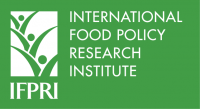Whither global trade talks after the failure in Buenos Aires?

The gathering of the Eleventh Ministerial Conference of the World Trade Organization in Buenos Aires Dec. 10-13 was impressive in size. It brought together nearly 4,000 ministers, senior trade officials and other delegates from the WTO's 164 members and observers as well as representatives from civil society, business and the global media.
The meeting’s achievements, however, were considerably less impressive . After 16 years of talks to complete the Doha Development Round , expectations prior to the meeting were already low. Yet this Ministerial Conference achieved even less than previous ones held in Bali and Nairobi. No ministerial declaration was issued.
It felt like a group of people who come together to dance an Argentine tango for the first time: They all feel equally helpless discovering that they don't know how to move without losing their balance or embrace another person without their heads getting in the way. They find that they cannot move, embrace, and listen to the music all at the same time.
Thus no agreement was possible on any of the substantive issues under discussion at the conference—and virtually no progress was made on agricultural trade.
The meeting was supposed to come to a permanent solution on the question of public stockholding for food security purposes: Whether countries should be permitted to hold substantial food grain reserves at reasonable prices without those being considered market distorting. But talks bogged down. A temporary arrangement agreed to in 2013 at the previous conference in Bali will now remain in effect—allowing countries such as India to continue subsidizing staple food grains for food security and public stockpiling purposes if they choose.
There were modest hopes for an agreement on measures to prohibit certain forms of fisheries subsidies that contribute to overcapacity and overfishing, and to eliminate subsidies that contribute to illegal, unreported, and unregulated (IUU) fishing. Thus, the lack of agreement here is considered by some as the conference’s main failure: The only thing participants settled on was to continue talking.
Negotiations over agricultural market access—already stalled for quite some time—made no progress either. On this front, WTO members have put in most of their efforts into bilateral and regional agreements (such as the Trans-Pacific Partnership, TPP) rather than seeking comprehensive global pacts. Some of those efforts have succeeded, others have collapsed, while others are in the process of being renegotiated ( NAFTA ) or are having difficulties delivering (ongoing EU-MERCOSUR). Overall, WTO has clearly lost ground in this area.
Domestic agricultural support measures are another important outstanding issue, but nothing happened on this front either in Buenos Aires. It has been difficult to tackle the problem of increasing supports in developed economies at the same time as in large emerging economies (India and China have become big spenders on agricultural support measures, making this a particularly delicate issue). Cotton and public stockholding are two prominent issues in this arena, and remain unresolved.
Ministers expressed their own disappointment over the lack of progress. But they gave their commitment to continue to move forward on negotiations over all remaining relevant issues, including work on the three pillars of agriculture (domestic support, market access, and export competition), on e-commerce, and on non-agricultural market access, services, development, TRIPS, rules, and trade and environment. Perhaps, for the WTO and multilateral trading system, this is a bit of good news.
Another piece of good news came from the Ministerial Conference’s side events, as 118 WTO member states signed a declaration on promoting gender equity and women’s empowerment in and through trade .
Who is to blame for the lack of progress? Well, it takes two (or, in the case of trade talks, 164 countries) to tango, but many observers saw the United States as being out of step. Among other things, the U.S. came out strongly against any WTO declaration on issues including cotton or public stockholding. More generally, the U.S. likely will oppose any WTO ruling that would put limits on supports to its farmers—an issue currently being negotiated in the new U.S. Farm Bill.
Perhaps it is time for WTO to rethink its agenda. Pursuing a final Doha Development Round agreement as an end in itself may not be that productive. Rather, it may be better to see the negotiations more as a means to making trade (facilitated by the trading rules) serve sustainable development goals such as food security and environmental protection. IFPRI experts made pleas in this direction at the Trade and Sustainable Development Symposium side event and book launch . Such a fresh approach could help members learn better moves and perhaps dance a proper tango by the time of the Twelfth Ministerial Conference in 2019.
Rob Vos is Director of IFPRI's Markets, Trade, and Institutions Division (MTID). Eugenio Diaz-Bonilla is Head of IFPRI's Latin American and Caribbean Program. David Laborde is a Senior Research Fellow with MTID. Valeria Piñeiro is a Senior Research Coordinator with MTID.
